Foods to avoid during pregnancy are Ajinomoto, caffeine, fatty foods, licorice, papaya, raw sprouts, sesame seeds, sugar, unpasteurized milk, undercooked meat, fish, and shellfish.
While maintaining a healthy diet is important throughout pregnancy, there are some items that expectant mothers should completely avoid.
Consult 19 years experienced Chief Nutritionist Vasanthi for expert advice and a personalized diet plan. In-person consultation at HSR, Koramangala, Bellandur, Haralur, and video consultation across India.
- Consultation INR 750
- 1 Week personalized diet plan INR 2000
- 1 Month personalized diet plan INR 4000
- 3 Months personalized diet plan INR 9000

Due to the immune system’s changes brought on by pregnancy, specific women may be more prone to infection.
Numerous foods contain bacteria or other contagious microorganisms that could harm the unborn child. Some viruses may still harm the fetus even if the pregnant lady does not feel ill.
- Avoid unpasteurized dairy products as they may contain harmful bacteria like Salmonella, E.coli, and Listeria. The bacteria growth can be due to contamination during handling and storage.
- Avoid raw eggs and undercooked meats – Contaminated eggs and meats contains bacteria that may lead to infections like fever, nausea, stomach pain, and diarrhea during pregnancy. Uterine cramps may sometimes lead to premature birth and underweight babies.
- It is advised to avoid/limit caffeine to <200 mg/day. The placenta and the fetus lack the enzyme to metabolize caffeine and this may lead to the build-up of caffeine. Caffeine can disrupt the growth of the fetus in the womb.
- Sprouts are always considered to be healthy but the risk of contamination is higher during pregnancy. Bacteria growth is stimulated in a humid environment that is ideal for growth. Eating cooked sprouts is always advised to avoid these kinds of infections.
- Processed and junk foods should be avoided during pregnancy as excess weight gain may lead to gestational diabetes and birth complications.
- The pregnancy food chart must consist of healthy foods that are highly nutritious to meet the daily requirements of the mother and baby.

Table of Contents
Why Pregnant Women Should Avoid Raw Sprouts?
Sprouts and greens are excellent sources of fiber and nutrients that usually fall under the healthy category as it is loaded with plenty of vitamins and minerals.
Raw sprouts can be contaminated with bacteria like Salmonella and E.Coli which survives under warm and humid conditions. It is advised to consume cooked sprouts during pregnancy as the immunity is suppressed and pregnant women are prone to attract infections easily.
Food poisoning, UTI infections, and respiratory illnesses are just a few of the issues from which an E. coli infection can result.
Sprouts boost metabolism and improve digestion due to the presence of insoluble fiber and digestive enzymes. It helps in preventing constipation and aids in regular bowel movements.
Sprouts contain 200 – 450 calories depending on the type of sprouts and it makes you feel energetic.
Sprouts are rich sources of protein. It keeps you fuller for a long time, thereby reducing the cravings for sugary foods. It also helps for a healthy weight gain during pregnancy.
Avoid raw or undercooked sprouts, such as:
- Mung beans
- Alfalfa
- Clover
- Radish
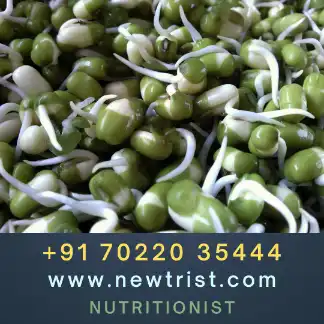
Risks of using Unpasteurized Apple Cider Vinegar during pregnancy
Unpasteurized apple cider vinegar is not usually recommended during pregnancy as it may harbor certain bacteria like Salmonella, Listeria, Toxoplasma, and others. Pregnant women are at higher risk of infections from these bacteria.
The acetic acid present in Apple cider vinegar is known for its antimicrobial activity and is essential for the growth of certain beneficial bacteria.
Use pasteurized apple cider vinegar to get relief from morning sickness and gastrointestinal problems. Apple cider vinegar is used to relieve heartburn which is a common symptom during the second trimester.
Apple cider vinegar helps to fight acne that may arise due to changes in hormonal levels. It also helps to prevent urinary tract infections which a pregnant woman often experiences.
Avoid Caffeine During Pregnancy for a Healthy Baby
Caffeine is a common ingredient found in coffee, tea, cola, and energy drinks. Caffeine causes insomnia, irritability, and nervousness.
200 mg/day is the safe amount of caffeine intake. Caffeine cannot be metabolized by the baby. High amounts of caffeine can increase the risk of miscarriages and low-birth-weight babies.
It is commonly advised to limit caffeine during pregnancy since it takes longer time than usual to metabolize the caffeine. The caffeine from the mother can transfer to the fetus and cause adverse effects in the baby.

Risks and Benefits of Sesame Seeds During Pregnancy
Sesame seeds were considered a “heat emitting food” that increases body heat and causes miscarriage and premature labor. However, no scientific clarifications are there to prove the same.
Sesame seeds are healthy and rich in iron, calcium, proteins, oxalic acid, vitamins B, C, E, and antioxidants.
Use sesame seeds in the form of chikki, laddoo, and tahini to avail of the nutritional benefits and to prevent the risks during pregnancy. Add some roasted till seeds for topping on salads, soups, and snacks for a crunchy texture.
The nutritious and tasty seeds can go in a variety of dishes and a pregnant woman should avoid this only if she is allergic to sesame seeds.
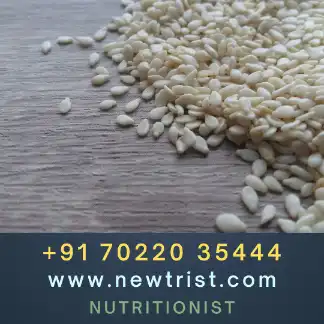
Risks and Benefits of Eating Papaya During Pregnancy
Well-ripened papaya is packed with nutrients and health benefits. It is a good source of vitamins A, B, and C, beta-carotene, and potassium. Ripe papaya improves digestion and immunity.
Papaya helps combat morning sickness and increase platelet count during pregnancy. Consume ripe papaya safely in limited quantities.
Raw papaya and semi-ripe papaya contain papain and latex which can induce labor and miscarriages. Papain weakens the membrane surrounding the fetus.

Risks of Ajinomoto Consumption During Pregnancy
Ajinomoto is a common ingredient used to enhance flavor in the making of Chinese dishes and street foods. Ajinomoto, commonly called MSG (Mono Sodium Glutamate) is regarded as safe for consumption during pregnancy.
MSG is usually a combination of sodium and amino acid glutamate which is naturally found in tomatoes, mushrooms, walnuts, and broths.
If a woman had an adverse reaction to high MSG before pregnancy, it is better to avoid it during pregnancy. Ajinomoto is added to fast foods, fried items, salty foods, and noodles.
The best advice is to keep the salt intake low during pregnancy to avoid discomfort. This leads to limiting foods that are high in MSG naturally during pregnancy.
Avoid Refined Flour Foods During Pregnancy
Intake of refined flour foods may lead to unwanted weight gain, gestational diabetes, and accumulation of fats in the body. Nutritionists usually do not recommend a diet made from refined flour.
Refined flour foods like bread, pasta, biscuits, pita bread, noodles, pizza, cakes, and bakery goods can cause constipation and bloat. These foods add empty calories with little/zero nutritional value and lead to unnecessary weight gain during pregnancy.
Unwashed Fruits and Vegetables are risky for Pregnant Mothers
Unwashed fruits and vegetables contain Toxoplasma, a parasite that is harmful to pregnant mothers and unborn children.
The germs present on the surface of fresh fruits and vegetables can cause a large number of food-borne illnesses. The presence of bacteria can be noticed on the outer peel and bruised surfaces that are to be removed to avoid infections.
Fruits and vegetables are the main sources of energy for pregnant women. Washing fruits and vegetables under running tap water are essential to remove the impurities from the soil and transportation.
Throw away the spoiled fruits and vegetables that can invade the bacteria.
List of herbs to avoid during pregnancy
Some herbs and spices should be avoided during the pregnancy period which is not beneficial.
- Coriander seeds – The phytoestrogens present in the coriander seeds cause uterine contractions more frequently and are regarded as harmful to the fetus.
- Fenugreek – The consumption of fenugreek seeds can cause bloating, diarrhea, gas, and acid reflux. This makes discomfort feeling in the uterus and slows down the baby’s growth when consumed in large amounts.
- Garlic – Heartburn, nausea, vomiting, and a burning sensation in the stomach may result due to the pungent flavor and taste of the garlic. Nausea has been experienced by many women as a result of its strong flavor and aroma.
- Peppermint – Peppermint can cause heartburn and miscarriage.
- Asafoetida/Hing – Asafoetida can lead to miscarriage and it is often used to treat menstrual problems.
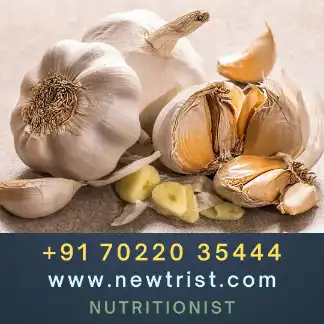
Surprising Risks of Canned Foods During Pregnancy
Canned foods are often loaded with excess salt and sugar that can be detrimental to a pregnant lady. Canned foods contain an epoxy lining called BPA (Bisphenol A) which causes cognitive, fertility, and behavioral issues in children.
When a pregnant woman consumes canned foods, this BPA is transferred to the fetus which can hurt the baby’s development. Obesity, depression, anxiety, early puberty in girls, and reproductive issues result later in life from exposure to BPA in the womb.
Go for fresh fruits and vegetables to reap maximum benefits instead of canned foods.
Avoid Packaged Foods During Pregnancy
Packaged foods are high in saturated fats and trans fats. Packaged foods like pickles, sauces, and chutneys are high in salt content, preservatives, additives, and chemicals that pose harmful effects on health.
Chips, biscuits, pies, pastries, ready-to-eat meals, soft drinks, carbonated beverages, and meat products are some of the packaged foods to be avoided.
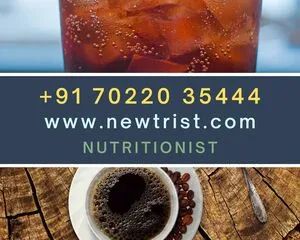
Avoid Nitrate-Rich Foods During Pregnancy
Nitrates are used to prolong the shelf life, freshness, and quality of foods. Sodium nitrate is a commonly used chemical to preserve meats from microbial and bacterial infections.
Nitrates can be naturally found in tap water, and vegetables like spinach, cabbage, lettuce, beetroot, and radishes.
Nitrates can induce pre-term delivery in pregnant mothers. Infants may suffer health complications as a result of premature birth. It is advised to stay away from processed foods and meats that contain a high nitrate content to prevent birth complications.
Foods high in nitrate contain a high concentration of sodium and saturated fats that are harmful to the developing fetus.
Sugar increases the risk of gestational diabetes and other complications
A pregnant woman should stay away from sweets, cakes, biscuits, chocolates, fizzy drinks, sweetened fruit juices, and carbonated beverages.
Consumption of free sugars can cause constipation, and gestational diabetes, and increase the risk of preeclampsia and preterm labor.
Although cravings for sugary foods may arise during the pregnancy period, they can be controlled by a smart selection of healthy foods and snacks.
Strictly avoid desserts and sweets as they also contain a lot of saturated fats in them. The child’s brain function may be affected by the intake of too much sugar. The sugars that are found naturally in fruits do not pose any harmful effects on the body.
A woman may experience tiredness, dry mouth, increased thirst, and the frequency to urinate increases when their blood sugar levels go high.
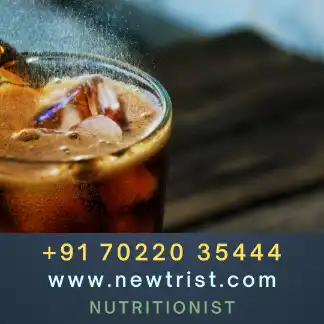
List of fatty foods to avoid during pregnancy
Foods like French fries, fried chicken, pizza, burgers, ice creams, donuts, cookies, pastries, baked goods, sausages, and hot dogs are high in saturated fats and can place the baby at risk of metabolic defects and increase the chances of obesity of the children later in their life.
The saturated and trans fats present in fatty foods solidify at room temperature and are notorious for raising cholesterol levels.
Butter, cream cheese, margarine, mayonnaise, heavy cream, coconut oil, palm oil, and sour cream are high in hydrogenated/trans fats that should be avoided during pregnancy.
Keep your intake of trans fats to less than 1% of your overall calorie intake to reduce the chance of developing heart disease, accelerated fetal growth, and premature delivery.
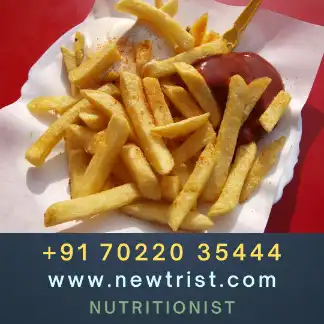
Avoid Artificial Sweeteners During Pregnancy
Artificial sweeteners like Aspartame, Stevia, Sucralose, and Saccharin have commonly used forms in processed foods and soft drinks. Aspartame can be taken in limited quantities during pregnancy.
The best suggestion is to avoid aspartame if you have Phenylketonuria (PKU) a rare genetic disorder where the phenylalanine levels are high in the blood.
FDA has regarded Saccharin to be safe for consumption during pregnancy, but saccharin can cross the placenta and stay in the baby’s tissues.
Sucralose is widely used in chewing gum, frostings, frozen dairy desserts, commercially available fruit juices, sweet sauces, and caffeinated beverages. It has been approved by FDA as safe to consume for everyone, including pregnant women.
It is beneficial to avoid all forms of artificial sweeteners and choose natural forms of sugar like honey and jaggery to enjoy tasty treats.

Risks of Licorice Foods During Pregnancy
Licorice foods during pregnancy can affect cognitive functions in children. Glycyrrhizin, a sweetener derived from the roots of the licorice plant is used to flavor candies, gums, herbal teas, and soft drinks.
Glycyrrhizin is 50 times sweeter than sugar and is used to treat ulcers and food poisoning in Chinese medicine. Glycyrrhizin causes a rise in blood pressure and induces preterm labor.
Licorice foods cause potassium levels to drop and lead to abnormal heart rhythms, high blood pressure, and heart failure in some cases.
Glycyrrhizin causes an increase in the levels of cortisol, a stress hormone that may affect the development of the nervous system of the baby. It is advised to avoid licorice foods to stay away from the detrimental consequences for expecting mothers.
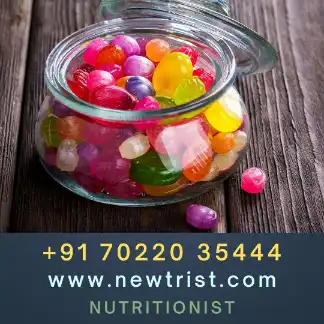
Avoid Undercooked Meats During Pregnancy
Undercooked meats carry the risk of Toxoplasmosis, a bacterial infection that can affect pregnant women. The infection is asymptomatic and harmless in normal people.
For pregnant mothers, it can lead to miscarriage, stillbirth, and the risk of organ damage in the fetus is higher.
All meats and poultry should the washed well and cooked thoroughly. Certain meats contain harmful listeria bacterium which can cause food poisoning to expectant mothers and their fetuses.
It is advisable to stay away from cured and uncooked meats to prevent foodborne illnesses.
Why You Should Avoid Raw Shellfish Foods During Pregnancy?
Raw shellfish consumption during pregnancy can lead to bacterial and parasitic infections which can be life-threatening. Toxoplasma gondii, a parasite that causes toxoplasmosis can spread from cat feces.
Pregnant women should refrain from handling cat litter. The Toxoplasma gondii can survive sewage treatment and reach the oceans through the river waters.
The clams, oysters, and mussels can attract the parasite, and humans are exposed to this parasite when raw shellfish are consumed.
Toxoplasmosis can lead to miscarriages and delay the development of the fetus. Pregnant women are advised to stay away from undercooked/raw shellfish foods to be safe from infections.
Raw shellfish like oysters and clams may be a potential source of Vibrio bacteria, which can lead to cholera and other diseases. Throw away any shells that do not open. Every shellfish should be cooked to 145°F (63℃).
List of Safe and Risky Fish during Pregnancy
Indian Salmon, Pomfret, Anchovies, Rohu, Katla, Mackerel, and Herring are some of the healthy fish safe to consume during pregnancy.
Fish is an excellent source of protein and omega-3 fatty acids that provide most of the nutrients required for pregnancy.
All the fish are not the same. Some fish may contain high levels of mercury that can be hazardous to the expecting mothers and the baby.
Fish to avoid during pregnancy includes Shark, Swordfish, and King Mackerel.
Consuming these kinds of fish can increase the mercury levels in the blood which can lead to problems in the brain development and nervous system of the baby.
Avoid sushi and sashimi that contains raw and undercooked fish and meats. Wash the fish well and cook to a temperature of 145℃ to ensure safety during consumption.
Pregnancy Foods FAQs
Are artificial sweeteners OK for gestational diabetes?
Artificial sweeteners approved by FDA such as Aspartame, Sucralose, Stevia, Neotame, and Advantame are safe to use in limited quantities for gestational diabetes. Nutra Sweet, Equal, and Natra taste contains Aspartame.
Splenda contains Sucralose. Aspartame and Sucralose do not have any impact on blood sugar levels and contain zero calories. It is advisable to avoid saccharin as it is regarded as a weak carcinogen and may cross the placenta and affect fetal growth.
Are bananas high in nitrates?
Bananas contain nitrates in negligible amounts (5 mg/100 gm of FW). Nitrates reduce the harmful bacteria in the digestive system. High intake of nitrate-rich foods may lead to serious complications during pregnancy. Low concentrations of nitrates do not affect pregnancy.
Can I drink coffee while pregnant?
It is not advisable to consume caffeinated drinks such as coffee and tea during pregnancy as it may interrupt the blood supply to the fetus and inhibit its growth. Not more than 200 mg of caffeine is safe during pregnancy. You can rarely consume coffee if you have cravings in moderate amounts. Consult our expert nutritionists to know your amount of coffee consumption during pregnancy.
Can we have raw papaya in early pregnancy?
Raw papaya is a strict “No-No” during pregnancy. Raw papaya contains papain enzyme that carries the risk of miscarriage during the early days of pregnancy. Papain shows hazardous effects on fetal development. The latex content of raw papaya induces uterine contractions and other harmful effects for a pregnant lady. Ripe papaya is a rich source of nutrients and also helps in reducing heartburn in some pregnant ladies.
Does eating a lot of sugar increase the risk of gestational diabetes?
Eating loads of sugar increases the risk of obesity which in turn paves the way for gestational diabetes. Sugary beverages, desserts, and sodas lead to increased gestational weight and complications during pregnancy.
Foods high in sugars increase your calorie intake which indirectly increases the risk of gestational diabetes. Sugar cravings are a normal symptom during pregnancy which can be managed by consuming fruits and healthy foods.
How does licorice affect pregnancy?
Licorice consumption can elevate blood pressure, cause headaches, fatigue, and increase the risk of miscarriage during pregnancy. Licorice contains glycyrrhizin that increases the sensitivity towards the adrenal cortex which causes these symptoms. Expecting mothers are advised to stay away from licorice to steer clear of the side effects of them.
How much artificial sweetener is safe during pregnancy?
The recommended daily intake of artificial sweeteners is 5 mg/kg of body weight. A pregnant woman who weighs 70 kg may take 350 mg of artificial sweetener per day which may account for 1-2 servings per day. Artificial sweeteners do not raise blood sugar levels and are a great substitute for added sugars.
Is it OK to eat Ajinomoto during pregnancy?
Ajinomoto (Mono Sodium Glutamate) is safe to eat in limited quantities occasionally during pregnancy. Ajinomoto may cause side effects such as nausea, vomiting, headaches, dizziness, excessive thirst, and disturbances in sleep during the early days of pregnancy.
Ajinomoto stimulates the brain cells and keeps you active when consumed at night. This may cause sleeplessness in expecting mothers.
Is it safe to eat licorice while pregnant?
Licorice can be consumed occasionally in the form of flavored desserts or ice creams, but licorice is not usually recommended during pregnancy. Licorice tends to lower the cognitive functions of the developing fetus.
Licorice can cause mild diarrhea and uterine contractions which may be harmful to the pregnant mother. Licorice may reduce potassium levels in the blood, cause irregular heartbeat, aggravate blood pressure, and cause lethargies.
Is pineapple safe during pregnancy?
Most people consider pineapple a fruit that induces premature contractions and believes it to be dangerous to consume during pregnancy. But no scientific evidence proves this condition. Pineapple is a good source of carbohydrates, fiber, folate, vitamins, and minerals that are essential during pregnancy.
A pregnant woman may discard the core of the pineapple as it may cause some digestive problems. Avoid consuming raw pineapple that contains bromelain which leads to uterine contractions and softening of the cervix.
Is Rohu fish safe during pregnancy?
Yes, Rohu fish is safe during pregnancy. Rohu fish is an excellent source of omega-3 fatty acids and omega-6 fatty acids which are vital nutrients throughout pregnancy. Rohu is low-mercury fish rich in vitamin C making it adaptable for regular consumption.
Rohu is a high-protein, low-fat fish that prevents the infections of colds, coughs, and nausea for expecting mothers. Avoid consuming raw or undercooked fish during pregnancy.
Is sesame in food safe during pregnancy?
Sesame seeds in their raw form carry the risk of Salmonella infection and it is advised to avoid them when raw during pregnancy. Sesame seeds are believed to raise the core temperature of the body and cause miscarriage in an expecting mother, but there is no scientific evidence to prove this condition.
Cleaned and roasted sesame seeds can be consumed in moderate amounts. Sesame seeds aid in strengthening the endometrial lining of the uterus and promote the production of progesterone.
Should fats be avoided during pregnancy?
It is not necessary to avoid fats completely. About 10% of the total calories should be derived from fats. Healthy fats such as omega-3 fatty acids are very much essential for the brain development of the baby and its cognitive functions. Steer clear of saturated fats from fried foods, fast foods, processed foods, packaged foods, and red meats.
What are the health benefits of sesame seeds in pregnancy?
Sesame seeds are good sources of fiber, proteins, essential amino acids, iron, calcium, vitamins B, C, and E, and antioxidants. Sesame seeds support bone formation in the growing fetus and strengthen the bones of the mother. The fiber content of sesame seeds prevents constipation and aids in better digestion.
The vitamin C content of sesame seeds helps in effective iron absorption. Consume sesame seeds as a laddoo, sprinkle over salads and soups, and relish as chutneys or dips.
What foods are high risk for pregnancy?
Raw/unpasteurized milk, soft cheese, raw sprouts, raw meats, uncooked sprouts, fish high in mercury, half-cooked eggs, salad dressings, mayonnaise (prepared with raw eggs), caffeinated drinks, street foods, and unhygienic water are some of the high-risk foods for pregnancy.
Unwashed fruits and vegetables carry a lot of germs and pave the way for enormous infections.
What foods are highest in nitrates?
Spinach, kale, cabbage, lettuce, beetroot, carrot, radishes, turnips, potatoes, broccoli, pumpkin, bananas, and strawberries are some of the food rich in nitrates. Washing and boiling the nitrate-rich foods helps to leach the nitrates in the water. Peeling the vegetables also helps in the removal of nitrates.
What foods should be avoided during pregnancy in India?
Raw cow’s milk, uncooked eggs, eggplants, radishes, fenugreek, drumsticks, garlic, raw sprouts, coriander, raw papaya, raw pineapple, aloe vera, refined flour parotas, coffee, cakes, biscuits, carbonated drinks, fried chicken, and deep-fried fish should be avoided during pregnancy in India. Foods prepared in unhygienic conditions may put you at risk of infections and miscarriage.
What herbs can affect pregnancy?
Rosemary, thyme, basil, parsley, dill, mint, fennel, and ginger supply the necessary nutrients and helps in the relief of certain symptoms during pregnancy. Herbs add flavors to any dish and make it appealing. Ginger alleviates morning sickness such as nausea and calms your tummy.
What herbs should be avoided during pregnancy?
Herbs like garlic, licorice, ginseng, tulsi, and fenugreek can affect pregnancy. garlic may induce symptoms like nausea, vomiting, and heartburn in pregnant women due to its pungent flavor and aroma.
Licorice cause headaches, high blood pressure, and fatigue when consumed in large quantities. Fenugreek seed consumption leads to bloating, acid reflux, and gastric problems and slows down the fetus’s growth.
What increases the risk of gestational diabetes?
Being overweight, obese, sedentary lifestyle, previous history of diabetes, stressful life, and having unhealthy food habits increase the risk of gestational diabetes. Practicing healthy eating patterns, maintaining a healthy weight, active lifestyle, and regular sleep can reduce the risk of gestational diabetes. Once your pregnancy is confirmed, do not try to lose weight.
What is the side effect of sesame seeds during pregnancy?
Consumption of raw sesame seeds may cause salmonella infection that may affect the mother and the baby. Sesame seeds carry the risk of stimulation of the uterine muscles resulting in the ejection of the fertilized ovum.
Excessive consumption may cause blood sugar and blood pressure levels to drop drastically. Some women may be allergic to sesame seeds, it is better to consider the intake of sesame seeds based on the health condition.
What are the side effects of Ajinomoto in pregnancy?
Ajinomoto, often referred to as Monosodium Glutamate (MSG) is a chemical used to enhance the flavor of dishes in restaurants and massive food preparations.
Too much consumption of Ajinomoto causes headaches, nausea, sweating, palpitations of the heart, tingling and burning sensation, and facial pressure. Processed and packaged foods, canned foods, soy sauce, Chinese food, and fast foods use Ajinomoto as flavor and taste enhancers.
What raw foods should be avoided during pregnancy?
Raw fish used in sushi, uncooked shellfish, and oysters, undercooked meats, half-boiled eggs, unpasteurized dairy products, and raw sprouts should be avoided during pregnancy.
Miscarriages may result due to infections caused by the ingestion of raw foods. Ensure the foods are cooked in a clean environment to avoid the health risks of a pregnant woman.
What seeds are safe during pregnancy?
Pumpkin seeds, sunflower seeds, chia seeds, flax seeds, and melon seeds are safe during pregnancy. Seeds are great sources of protein, fiber, essential fatty acids like omega-3 fatty acids, vitamins, and minerals.
Roasted seeds find an excellent place on your snack list that prevents constipation which is a major complaint during pregnancy. Sunflower seeds are great sources of folic acid which supports baby growth.
Which Indian fish is best in pregnancy?
Rohu, Catla, Butterffish (Pomfret), Rawas (Indian Salmon), and Indian Mackerel (Bangda) are a few Indian fish best for pregnancy. Fish are great sources of proteins, essential amino acids, DHA, and omega-3 fatty acids that promote a baby’s brain development and overall growth.
Fish consumption prevents the risk of becoming overweight, reduces gestational hypertension, and improves mood during pregnancy.
Which Indian fish to avoid during pregnancy?
Surmai fish, also called Indo-Pacific mackerel is an Indian fish high in mercury that should be avoided during pregnancy.
Which leaf is not good for pregnant women?
Uncooked/raw leaves are not good for pregnant women. Raw produce contains germs, dust, insecticides, herbicides, and other harmful chemicals that may destruct the health of the unborn child.
It is necessary to wash the leaves under running tap water to remove the impurities. Tulsi leaves are not good for pregnant women as they may affect the embryo and cause uterine contractions.
Which types of fish are unsafe during pregnancy?
Fish high in mercury such as Bigeye tuna, Shark fish, Tilefish, Orange roughy, Swordfish, King Mackerel, and Shellfish are unsafe during pregnancy. although seafood serves to be a great source of proteins, the high levels of mercury in them make it unfit for pregnancy food.
Mercury affects the baby’s nervous system during its developmental stages. The mercury in the oceans is absorbed by the fish and causes detrimental effects on the development of the fetus.
Why are raw bean sprouts bad for pregnancy?
Raw bean sprouts contain germs that carry the risk of Salmonella, Listeria, and E.Coli infections that are hazardous to the growing fetus and expecting mother. These germs survive in warm and humid conditions that make pregnant women sick.
Sprouts provide numerous nutritional benefits that can be achieved by washing and cooking the sprouts well before consumption. Sprouts are excellent sources of fiber, proteins, vitamins, and minerals.